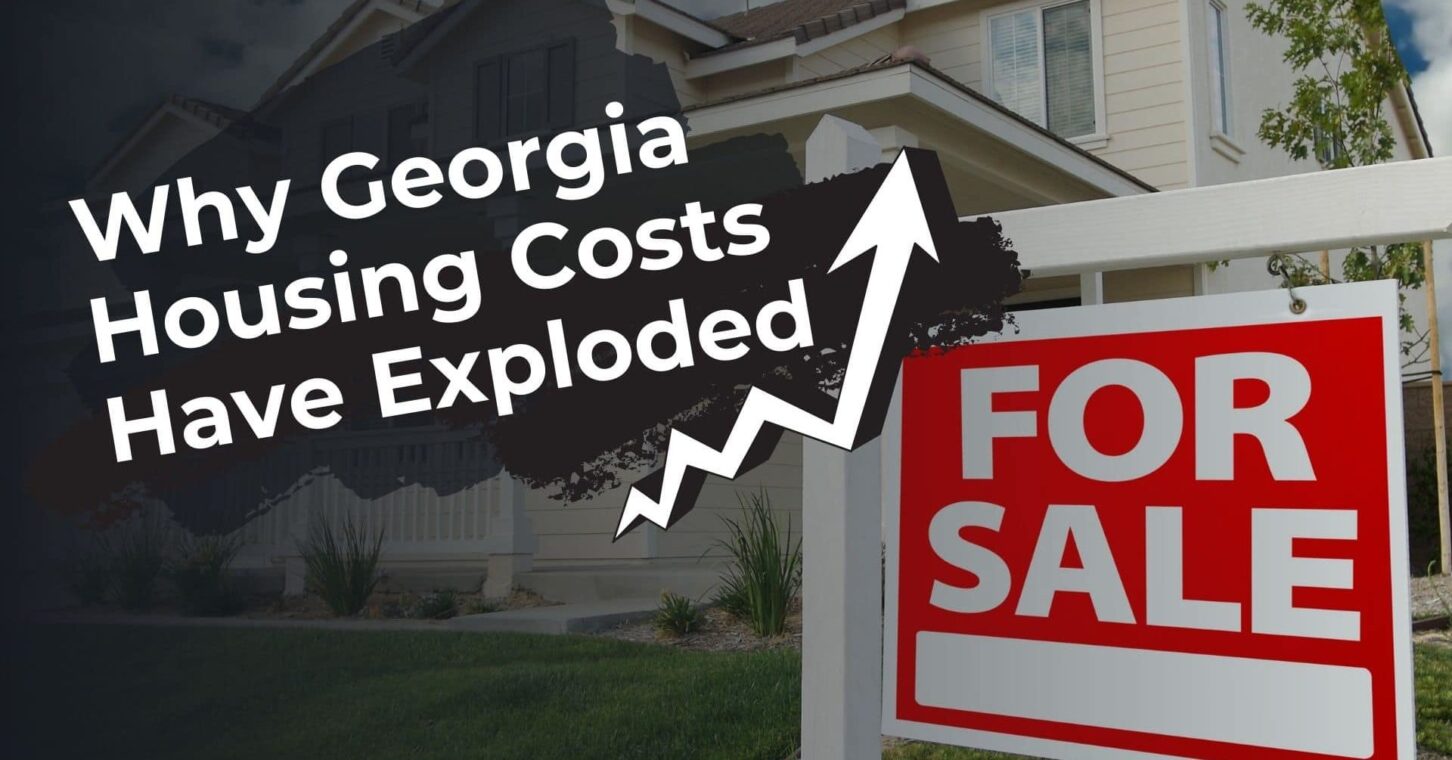
It’s no secret that the cost of housing across Georgia has climbed to extreme heights.
From Atlanta to Valdosta and everywhere in between, communities across the state are facing a shortage of new single-family homes. And despite the state’s booming population growth, new homes simply aren’t being built. In fact, more building permits were issued during the last five years of the 1990s than during the entire decade from 2010 to 2019.
Why aren’t new homes being built?
The rising cost of lumber and materials, as well as supply chain issues, certainly contribute to why new construction is so expensive. But, it’s far from the only reason. There’s several hidden hurdles that drive up prices.
In a statewide survey of dozens of developers and builders, we asked respondents to estimate how much regulatory costs, whether from the federal, state or local governments, contribute to the price of new, single-family houses they build.
The answer: 26.9% on average.
That’s right. More than one-quarter of the cost of a new home in Georgia is made up of government regulation and fees.
That’s about 3 percentage points higher than the national average, and it represents tens of thousands of dollars to builders or homebuyers.
That means that for a $250,000 home:

- Changes to the building code: $17,500
- Zoning approval and compliance: $17,250
- Atypical greenspace requirements: $14,500
- Aesthetic architectural ordinances: $10,250
- Labor requirements: $6,250
- Delays and bureaucratic process: $2,000
For a grand total of nearly $67,250!
Now, lets get one thing straight: The right answer here is not zero.
Some of these regulatory costs include things like utility hookups. If the builder or homebuyer didn’t pay for that, it is likely that taxpayers would have to. But when regulations are solely responsible for nearly 27% of the final retail price, there are plentiful opportunities to examine where cuts can be made.
If our elected leaders want to make sure Georgians can buy a home, they can start by examining how they are making it unaffordable in the first place.
